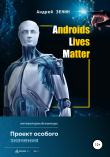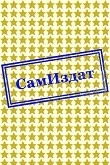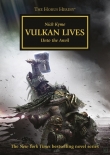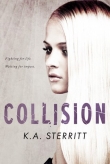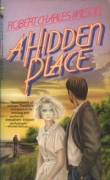
Текст книги "Nine Lives"
Автор книги: Ursula Kroeber Le Guin
Жанр:
Научная фантастика
сообщить о нарушении
Текущая страница: 1 (всего у книги 2 страниц)
Nine Lives
URSULA K. LE GUIN
She was alive inside, but dead outside, her face a black and dun net of wrinkles, tumors, cracks. She was bald and blind. The tremors that crossed Libra's face were mere quiverings of corruption: underneath, in the black corridors, the halls beneath the skin, there were crepitations in darkness, ferments, chemical nightmares that went on for centuries. "Oh the damned flatulent planet," Pugh murmured as the dome shook and a boil burst a kilometer to the southwest, spraying silver pus across the sunset. The sun had been setting for the last two days. "I'll be glad to see a human face."
"Thanks," said Martin.
"Yours is human to be sure," said Pugh, "but I've seen it so long I can't see it.”
Radvid signals cluttered the communicator which Martin was operating, faded, returned as face and voice. The face rilled the screen, the nose of an Assyrian king, the eyes of a samurai, skin bronze, eyes the color of iron: young, magnificent. "Is that what human beings look like?" said Pugh with awe. "I'd forgotten."
"Shut up, Owen, we're on."
"Libra Exploratory Mission Base, come in please, this is Passerinelaunch."
"Libra here. Beam fixed. Come on down, launch."
"Expulsion in seven E-seconds. Hold on." The screen blanked and sparkled.
"Do they all look like that? Martin, you and I are uglier men than I thought."
"Shut up, Owen. ..."
For twenty-two minutes Martin followed the landing-craft down by signal and then through the cleared dome they saw it, small star in the blood-colored east, sinking. It came down neat and quiet, Libra's thin atmosphere carrying little sound. Pugh and Martin closed the headpieces of their imsuits, zipped out of the dome airlocks, and ran with soaring strides, Nijinsky and Nureyev, toward the boat. Three equipment modules came floating down at four-minute intervals from each other and hundred-meter intervals east of the boat. "Come on out," Martin said on his suit radio, "we're waiting at the door."
"Come on in, the methane's fine," said Pugh.
The hatch opened. The young man they had seen on the screen came out with one athletic twist and leaped down onto the shaky dust and clinkers of Libra. Martin shook his hand, but Pugh was staring at the hatch, from which another young man emerged with the same neat twist and jump, followed by a young woman who emerged with the same neat twist, ornamented by a wriggle, and the jump. They were all tall, with bronze skin, black hair, high-bridged noses, epicanthic fold, the same face. They all had the same face. The fourth was emerging from the hatch with a neat twist and jump. "Martin bach," said Pugh, "we've got a clone."
"Right," said one of them, "we're a tenclone. John Chow's the name. You're Lieutenant Martin?"
"I'm Owen Pugh."
"Alvaro Guillen Martin," said Martin, formal, bowing slightly. Another girl was out, the same beautiful face; Martin stared at her and his eye rolled like a nervous pony's. Evidently he had never given any thought to cloning, and was suffering technological shock. "Steady," Pugh said in the Argentine dialect, "it's only excess twins." He stood close by Martin's elbow. He was glad himself of the contact.
It is hard to meet a stranger. Even the greatest extrovert meeting even the meekest stranger knows a certain dread, though he may not know he knows it. Will he make a fool of me wreck my image of myself invade me destroy me change me? Will he be different from me? Yes, that he will. There's the terrible thing: the strangeness of the stranger.
After two years on a dead planet, and the last half year isolated as a team of two, oneself and one other, after that it's even harder to meet a stranger, however welcome he may be. You're out of the habit of difference, you've lost the touch; and so the fear revives, the primitive anxiety, the old dread.
The clone, five males and five females, had got done in a couple of minutes what a man might have got done in twenty: greeted Pugh and Martin, had a glance at Libra, unloaded the boat, made ready to go. They went, and the dome filled with them, a hive of golden bees. They hummed and buzzed quietly, filled up all silences, all spaces with a honey-brown swarm of human presence. Martin looked bewilderedly at the long-limbed girls, and they smiled at him, three at once. Their smile was gentler than that of the boys, but no less radiantly self-possessed.
"Self-possessed," Owen Pugh murmured to his friend, "that's it. Think of it, to be oneself ten times over. Nine seconds for every motion, nine ayes on every vote. It would be glorious!" But Martin was asleep. And the John Chows had all gone to sleep at once. The dome was filled with their quiet breathing. They were young, they didn't snore. Martin sighed and snored, his Hershey-bar-colored face relaxed in the dim afterglow of Libra's primary, set at last. Pugh had cleared the dome and stars looked in, Sol among them, a great company of lights, a clone of splendors. Pugh slept and dreamed of a one-eyed giant who chased him through the shaking halls of Hell.
From his sleeping-bag Pugh watched the clone's awakening. They all got up within one minute except for one pair, a boy and a girl, who lay snugly tangled and still sleeping in one bag. As Pugh saw this there was a shock like one of Libras earthquakes inside him, a very deep tremor. He was not aware of this, and in fact thought he was pleased at the sight; there was no other such comfort on this dead hollow world, more power to them, who made love. One of the others stepped on the pair. They woke and the girl sat up flushed and sleepy, with bare golden breasts. One of her sisters murmured something to her; she shot a glance at Pugh and disappeared in the sleeping-bag, followed by a giant giggle, from another direction a fierce stare, from still another direction a voice: "Christ, we're used to having a room to ourselves. Hope you don't mind, Captain Pugh."
"It's a pleasure," Pugh said half-truthfully. He had to stand up then, wearing only the shorts he slept in, and he felt like a plucked rooster, all white scrawn and pimples. He had seldom envied Martin's compact brown-ness so much. The United Kingdom had come through the Great Famines well, losing less than half its population: a record achieved by rigorous food-control. Black-marketeers and hoarders had been executed. Crumbs had been shared. Where in richer lands most had died and a few had thriven, in Britain fewer died and none throve. They all got lean. Their sons were lean, their grandsons lean, small, brittle-boned, easily infected. When civilization became a matter of standing in lines, the British had kept queue, and so had replaced the survival of the fittest with the survival of the fair-minded. Owen Pugh was a scrawny little man. All the same, he was there.
At the moment he wished he wasn't.
At breakfast a John said, "Now if you'll brief us, Captain Pugh—"
"Owen, then."
"Owen, we can work out our schedule. Anything new on the mine since your last report to your Mission? We saw your reports when Passerinewas orbiting Planet V, where they are now."
Martin did not answer, though the mine was his discovery and project, and Pugh had to do his best. It was hard to talk to them. The same faces, each with the same expression of intelligent interest, all leaned toward him across the table at almost the same angle. They all nodded together.
Over the Exploitation Corps insignia on their tunics each had a name-band, first name John and last name Chow of course, but the middle names different. The men were Aleph, Kaph, Yod, Gimel, and Samedh; the women Sadhe, Daleth, Zayin, Beth, and Resh. Pugh tried to use the names but gave it up at once; he could not even tell sometimes which one had spoken, for the voices were all alike.
Martin buttered and chewed his toast, and finally interrupted: "You're a team. Is that it?"
"Right," said two Johns.
"God, what a team! I hadn't seen the point. How much do you each know what the others are thinking?"
"Not at all, properly speaking," replied one of the girls, Zayin. The others watched her with the proprietary, approving look they had. "No ESP, nothing fancy. But we think alike. We have exactly the same equipment. Given the same stimulus, the same problem, we're likely to be coming up with the same reactions and solutions at the same time. Explanations are easy—don't even have to make them, usually. We seldom misunderstand each other. It does facilitate our working as a team."
"Christ yes," said Martin. "Pugh and I have spent seven hours out of ten for six months misunderstanding each other. Like most people. What about emergencies, are you as good at meeting the unexpected problem as a nor ... an unrelated team?"
"Statistics so far indicate that we are," Zayin answered readily. Clones must be trained, Pugh thought, to meet questions, to reassure and reason. All they said had the slightly bland and stilted quality of answers furnished to the Public. "We can't brainstorm as singletons can, we as a team don't profit from the interplay of varied minds; but we have a compensatory advantage. Clones are drawn from the best human material, individuals of IIQ 99th percentile, Genetic Constitution alpha double A, and so on. We have more to draw on than most individuals do."
"And it's multiplied by a factor of ten. Who is—who was John Chow?"
"A genius surely," Pugh said politely. His interest in cloning was not so new and avid as Martin's.
"Leonardo Complex type," said Yod. "Biomath, also a cellist, and an undersea hunter, and interested in structural engineering problems, and so on. Died before he'd worked out his major theories."
"Then you each represent a different facet of his mind, his talents?"
"No," said Zayin, shaking her head in time with several others. "We share the basic equipment and tendencies, of course, but we're all engineers in Planetary Exploitation. A later clone can be trained to develop other aspects of the basic equipment. It's all training; the genetic substance is identical. We areJohn Chow. But we were differently trained."
Martin looked shell-shocked. "How old are you?"
"Twenty-three."
"You say he died young– Had they taken germ cells from him beforehand or something?"
Gimel took over: "He died at twenty-four in an aircar crash. They couldn't save the brain, so they took some intestinal cells and cultured them for cloning. Reproductive cells aren't used for cloning since they have only half the chromosomes. Intestinal cells happen to be easy to despecialize and reprogram for total growth."
"All chips off the old block," Martin said valiantly. "But how can . . . some of you be women . . . ?"
Beth took over: "It's easy to program half the clonal mass back to the female. Just delete the male gene from half the cells and they revert to the basic, that is, the female. It's trickier to go the other way, have to hook in artificial Y chromosomes. So they mostly clone from males, since clones function best bisexually."
Gimel again: "They've worked these matters of technique and function out carefully. The taxpayer wants the best for his money, and of course clones are expensive. With the cell-manipulations, and the incubation in Ngama Placentae, and the maintenance and training of the foster-parent groups, we end up costing about three million apiece."
"For your next generation," Martin said, still struggling, "I suppose you . . . you breed?"
"We females are sterile," said Beth with perfect equanimity; "you remember that the Y chromosome was deleted from our original cell. The males can interbreed with approved singletons, if they want to. But to get John Chow again as often as they want, they just reclone a cell from this clone."
Martin gave up the struggle. He nodded and chewed cold toast. "Well," said one of the Johns, and all changed mood, like a flock of starlings that change course in one wingflick, following a leader so fast that no eye can see which leads. They were ready to go. "How about a look at the mine? Then we'll unload the equipment. Some nice new models in the roboats; you'll want to see them. Right?" Had Pugh or Martin not agreed they might have found it hard to say so. The Johns were polite but unanimous; their decisions carried. Pugh, Commander of Libra Base 2, felt a qualm. Could he boss around this superman-woman-entity-of-ten? and a genius at that? He stuck close to Martin as they suited for outside. Neither said anything.
Four apiece in the three large jetsleds, they slipped off north from the dome, over Libra's dun rugose skin, in starlight.
"Desolate," one said.
It was a boy and girl with Pugh and Martin. Pugh wondered if these were the two that had shared a sleeping-bag last night. No doubt they wouldn't mind if he asked them. Sex must be as handy as breathing, to them. Did you two breathe last night?
"Yes," he said, "it is desolate."
"This is our first time Off, except training on Luna." The girl's voice was definitely a bit higher and softer.
"How did you take the big hop?"
"They doped us. I wanted to experience it." That was the boy; he sounded wistful. They seemed to have more personality, only two at a time. Did repetition of the individual negate individuality?
"Don't worry," said Martin, steering the sled, "you can't experience no-time because it isn't there."
"I'd just like to once," one of them said. "So we'd know."
The Mountains of Merioneth showed leprotic in starlight to the east, a plume of freezing gas trailed silvery from a vent-hole to the west, and the sled tilted groundward. The twins braced for the stop at one moment, each with a slight protective gesture to the other. Your skin is my skin, Pugh thought, but literally, no metaphor. What would it be like, then, to have someone as close to you as that? Always to be answered when you spoke, never to be in pain alone. Love your neighbor as you love yourself. . . . That hard old problem was solved. The neighbor was the self: the love was perfect.
And here was Hellmouth, the mine.
Pugh was the Exploratory Mission's ET geologist, and Martin his technician and cartographer; but when in the course of a local survey Martin had discovered the U-mine, Pugh had given him full credit, as well as the onus of prospecting the lode and planning the Exploitation Team's job. These kids had been sent out from Earth years before Martin's reports got there, and had not known what their job would be until they got here. The Exploitation Corps simply set out teams regularly and blindly as a dandelion sends out its seeds, knowing there would be a job for them on Libra or the next planet out or one they hadn't even heard about yet. The Government wanted uranium too urgently to wait while reports drifted home across the light-years. The stuff was like gold, old-fashioned but essential, worth mining extra-terrestrially and shipping interstellar. Worth its weight in people, Pugh thought sourly, watching the tall young men and women go one by one, glimmering in starlight, into the black hole Martin had named Hellmouth.
As they went in their homeostatic forehead-lamps brightened. Twelve nodding gleams ran along the moist, wrinkled walls. Pugh heard Martin's radiation counter peeping twenty to the dozen up ahead. "Here's the dropoff," said Martin's voice in the suit intercom, drowning out the peeping and the dead silence that was around them. "We're in a side-fissure; this is the main vertical vent in front of us." The black void gaped, its far side not visible in the headlamp beams. "Last vulcanism seems to have been a couple of thousand years ago. Nearest fault is twenty-eight kilos east, in the Trench. This region seems to be as safe seismically as anything in the area. The big basalt-flow overhead stabilizes all these substructures, so long as it remains stable itself. Your central lode is thirty-six meters down and runs in a series of five bubble-caverns northeast. It is a lode, a pipe of very high-grade ore. You saw the percentage figures, right? Extraction's going to be no problem. All you've got to do is get the bubbles topside."
"Take off the lid and let 'em float up." A chuckle. Voices began to talk, but they were all the same voice and the suit radio gave them no location in space. "Open the thing right up. —Safer that way. —But it's a solid basalt roof, how thick, ten meters here?—Three to twenty, the report said. —Blow good ore all over the lot. —Use this access we're in, straighten it a bit and run slider-rails for the robos. —Import burros. —Have we got enough propping material?—What's your estimate of total payload mass, Martin?"
"Say over five million kilos and under eight."
"Transport will be here in ten E-months. —It'll have to go pure. —No, they'll have the mass problem in NAFAL shipping licked by now; remember it's been sixteen years since we left Earth last Tuesday. – Right, they'll send the whole lot back and purify it in Earth orbit. – Shall we go down, Martin?"
"Go on. I've been down."
The first one—Aleph? (Heb., the ox, the leader)—swung onto the ladder and down; the rest followed. Pugh and Martin stood at the chasm s edge. Pugh set his intercom to exchange only with Martin's suit, and noticed Martin doing the same. It was a bit wearing, this listening to one person think aloud in ten voices, or was it one voice speaking the thoughts often minds?
"A great gut," Pugh said, looking down into the black pit, its veined and warted walls catching stray gleams of headlamps far below. "A cow's bowel. A bloody great constipated intestine."
Martin's counter peeped like a lost chicken. They stood inside the epileptic planet, breathing oxygen from tanks, wearing suits impermeable to corrosives and harmful radiations, resistant to a two-hundred-degree range of temperatures, tear-proof, and as shock-resistant as possible given the soft vulnerable stuff inside.
"Next hop," Martin said, "I'd like to find a planet that has nothing whatever to exploit."
"You found this."
"Keep me home next time."
Pugh was pleased. He had hoped Martin would want to go on working with him, but neither of them was used to talking much about their feelings, and he had hesitated to ask. "I'll try that," he said.
"I hate this place. I like caves, you know. It's why I came in here. Just spelunking. But this one's a bitch. Mean. You can't ever let down in here. I guess this lot can handle it, though. They know their stuff."
"Wave of the future, whatever," said Pugh.
The wave of the future came swarming up the ladder, swept Martin to the entrance, gabbled at and around him: "Have we got enough material for supports? —If we convert one of the extractor-servos to anneal, yes.—Sufficient if we miniblast?—Kaph can calculate stress." Pugh had switched his intercom back to receive them; he looked at them, so many thoughts jabbering in an eager mind, and at Martin standing silent among them, and at Hellmouth, and the wrinkled plain. "Settled! How does that strike you as a preliminary schedule, Martin?"
"It's your baby," Martin said.
Within five E-days the Johns had all their material and equipment unloaded and operating, and were starting to open up the mine. They worked with total efficiency. Pugh was fascinated and frightened by their effectiveness, their confidence, their independence. He was no use to them at all. A clone, he thought, might indeed be the first truly stable, self-reliant human being. Once adult it would need nobody's help. It would be sufficient to itself physically, sexually, emotionally, intellectually. Whatever he did, any member of it would always receive the support and approval of his peers, his other selves. Nobody else was needed.
Two of the clone stayed in the dome doing calculations and paperwork, with frequent sled-trips to the mine for measurements and tests. They were the mathematicians of the clone, Zayin and Kaph. That is, as Zayin explained, all ten had had thorough mathematical training from age three to twenty-one, but from twenty-one to twenty-three she and Kaph had gone on with math while the others intensified other specialties, geology, mining engineering, electronic engineering, equipment robotics, applied atomics, and so on. "Kaph and I feel," she said, "that we're the element of the clone closest to what John Chow was in his singleton lifetime. But of course he was principally in biomath, and they didn't take us far in that."
"They needed us most in this field," Kaph said, with the patriotic priggishness they sometimes evinced.
Pugh and Martin soon could distinguish this pair from the others, Zayin by gestalt, Kaph only by a discolored left fourth fingernail, got from an ill-aimed hammer at the age of six. No doubt there were many such differences, physical and psychological, among them; nature might be identical, nurture could not be. But the differences were hard to find. And part of the difficulty was that they really never talked to Pugh and Martin. They joked with them, were polite, got along fine. They gave nothing. It was nothing one could complain about; they were very pleasant, they had the standardized American friendliness. "Do you come from Ireland, Owen?"
"Nobody comes from Ireland, Zayin."
"There are lots of Irish-Americans."
"To be sure, but no more Irish. A couple of thousand in all the island, the last I knew. They didn't go in for birth-control, you know, so the food ran out. By the Third Famine there were no Irish left at all but the priesthood, and they were all celibate, or nearly all."
Zayin and Kaph smiled stiffly. They had no experience of either bigotry or irony. "What are you then, ethnically?" Kaph asked, and Pugh replied, "A Welshman."
"Is it Welsh that you and Martin speak together?"
None of your business, Pugh thought, but said, "No, it's his dialect, not mine: Argentinean. A descendant of Spanish."
"You learned it for private communication?"
"Whom had we here to be private from? It's just that sometimes a man likes to speak his native language."
"Ours is English," Kaph said unsympathetically. Why should they have sympathy? That's one of the things you give because you need it back.
"Is Wells quaint?" asked Zayin.
"Wells? Oh, Wales, it's called. Yes. Wales is quaint." Pugh switched on his rock-cutter, which prevented further conversation by a synapse-destroying whine, and while it whined he turned his back and said a profane word in Welsh.
That night he used the Argentine dialect for private communication. "Do they pair off in the same couples, or change every night?"
Martin looked surprised. A prudish expression, unsuited to his features, appeared for a moment. It faded. He too was curious. "I think it's random."
"Don't whisper, man, it sounds dirty. I think they rotate."
"On a schedule?"
"So nobody gets omitted."
Martin gave a vulgar laugh and smothered it. "What about us? Aren't we omitted?"
"That doesn't occur to them."
"What if I proposition one of the girls?"
"She'd tell the others and they'd decide as a group."
"I am not a bull, "Martin said, his dark, heavy face heating up. "I will not be judged—"
"Down, down, machismo,"said Pugh. "Do you mean to proposition one?"
Martin shrugged, sullen. "Let 'em have their incest."
"Incest is it, or masturbation?"
"I don't care, if they'd do it out of earshot!"
The clone's early attempts at modesty had soon worn off, unmotivated by any deep defensiveness of self or awareness of others. Pugh and Martin were daily deeper swamped under the intimacies of its constant emotional-sexual-mental interchange: swamped yet excluded.
"Two months to go," Martin said one evening.
"To what?" snapped Pugh. He was edgy lately and Martin's sullenness got on his nerves.
"To relief."
In sixty days the full crew of their Exploratory Mission were due back from their survey of the other planets of the system. Pugh was aware of this.
"Crossing off the days on your calendar?" he jeered.
"Pull yourself together, Owen."
"What do you mean?"
"What I say."
They parted in contempt and resentment.
Pugh came in after a day alone on the Pampas, a vast lava-plain the nearest edge of which was two hours south by jet. He was tired, but refreshed by solitude. They were not supposed to take long trips alone, but lately had often done so. Martin stooped under bright lights, drawing one of his elegant, masterly charts: this one was of the whole face of Libra, the cancerous face. The dome was otherwise empty, seeming dim and large as it had before the clone came. "Where's the golden horde?"
Martin grunted ignorance, crosshatching. He straightened his back to glance around at the sun, which squatted feebly like a great red toad on the eastern plain, and at the clock, which said 18:45. "Some big quakes today," he said, returning to his map. "Feel them down there? Lot of crates were falling around. Take a look at the seismo."
The needle jigged and wavered on the roll. It never stopped dancing here. The roll had recorded five quakes of major intensity back in mid-afternoon; twice the needle had hopped off the roll. The attached computer had been activated to emit a slip reading, "Epicenter 61' N by 4'24" E."
"Not in the Trench this time."
"I thought it felt a bit different from usual. Sharper."
"In Base One I used to lie awake all night feeling the ground jump. Queer how you get used to things."
"Go spla if you didn't. What's for dinner?"
"I thought you'd have cooked it."
"Waiting for the clone."
Feeling put upon, Pugh got out a dozen dinnerboxes, stuck two in the Instobake, pulled them out. "All right, here's dinner."
"Been thinking," Martin said, coming to the table. "What if some clone cloned itself? Illegally. Made a thousand duplicates—ten thousand. Whole army. They could make a tidy power-grab, couldn't they?"
"But how many millions did this lot cost to rear? Artificial placentae and all that. It would be hard to keep secret, unless they had a planet to themselves. . . . Back before the Famines when Earth had national governments, they talked about that: clone your best soldiers, have whole regiments of them. But the food ran out before they could play that game."
They talked amicably, as they used to.
"Funny," Martin said, chewing. "They left early this morning, didn't they?"
"All but Kaph and Zayin. They thought they'd get the first pay load aboveground today. What's up?"
"They weren't back for lunch."
"They won't starve, to be sure."
"They left at seven."
"So they did." Then Pugh saw it. The air-tanks held eight hours' supply.
"Kaph and Zayin carried out spare cans when they left. Or they've got a heap out there."
"They did, but they brought the whole lot in to recharge." Martin stood up, pointing to one of the stacks of stuff that cut the dome into rooms and alleys.
"There's an alarm signal on every imsuit."
"Its not automatic."
Pugh was tired and still hungry. "Sit down and eat, man. That lot can look after themselves."
Martin sat down, but did not eat. "There was a big quake, Owen. The first one. Big enough, it scared me."
After a pause Pugh sighed and said, "All right."
Unenthusiastically, they got out the two-man sled that was always left for them, and headed it north. The long sunrise covered everything in poisonous red jello. The horizontal light and shadow made it hard to see, raised walls of fake iron ahead of them through which they slid, turned the convex plain beyond Hellmouth into a great dimple full of bloody water. Around the tunnel entrance a wilderness of machinery stood, cranes and cables and servos and wheels and diggers and robocarts and sliders and control-huts, all slanting and bulking incoherently in the red light. Martin jumped from the sled, ran into the mine. He came out again, to Pugh. "Oh God, Owen, it's down," he said. Pugh went in and saw, five meters from the entrance, the shiny, moist, black wall that ended the tunnel. Newly exposed to air, it looked organic, like visceral tissue. The tunnel entrance, enlarged by blasting and double-tracked for robocarts, seemed unchanged until he noticed thousands of tiny spiderweb cracks in the walls. The floor was wet with some sluggish fluid.
"They were inside," Martin said.
"They may be still. They surely had extra air-cans—"
"Look, Owen, look at the basalt flow, at the roof; don't you see what the quake did, look at it."
The low hump of land that roofed the caves still had the unreal look of an optical illusion. It had reversed itself, sunk down, leaving a vast dimple or pit. When Pugh walked on it he saw that it too was cracked with many tiny fissures. From some a whitish gas was seeping, so that the sunlight on the surface of the gas-pool was shafted as if by the waters of a dim red lake.
"The mine's not on the fault. There's no fault here!"
Pugh came back to him quickly. "No, there's no fault, Martin. Look, they surely weren't all inside together."
Martin followed him and searched among the wrecked machines dully, then actively. He spotted the airsled. It had come down heading south, and stuck at an angle in a pothole of colloidal dust. It had carried two riders. One was half sunk in the dust, but his suit-meters registered normal functioning; the other hung strapped onto the tilted sled. Her imsuit had burst open on the broken legs, and the body was frozen hard as any rock. That was all they found. As both regulation and custom demanded, they cremated the dead at once with the laser-guns they carried by regulation and had never used before. Pugh, knowing he was going to be sick, wrestled the survivor onto the two-man sled and sent Martin off to the dome with him. Then he vomited, and flushed the waste out of his suit, and finding one four-man sled undamaged followed after Martin, shaking as if the cold of Libra had got through to him.
The survivor was Kaph. He was in deep shock. They found a swelling on the occiput that might mean concussion, but no fracture was visible.
Pugh brought two glasses of food-concentrate and two chasers of aquavit. "Come on," he said. Martin obeyed, drinking off the tonic. They sat down on crates near the cot and sipped the aquavit.
Kaph lay immobile, face like beeswax, hair bright black to the shoulders, lips stiffly parted for faintly gasping breaths.
